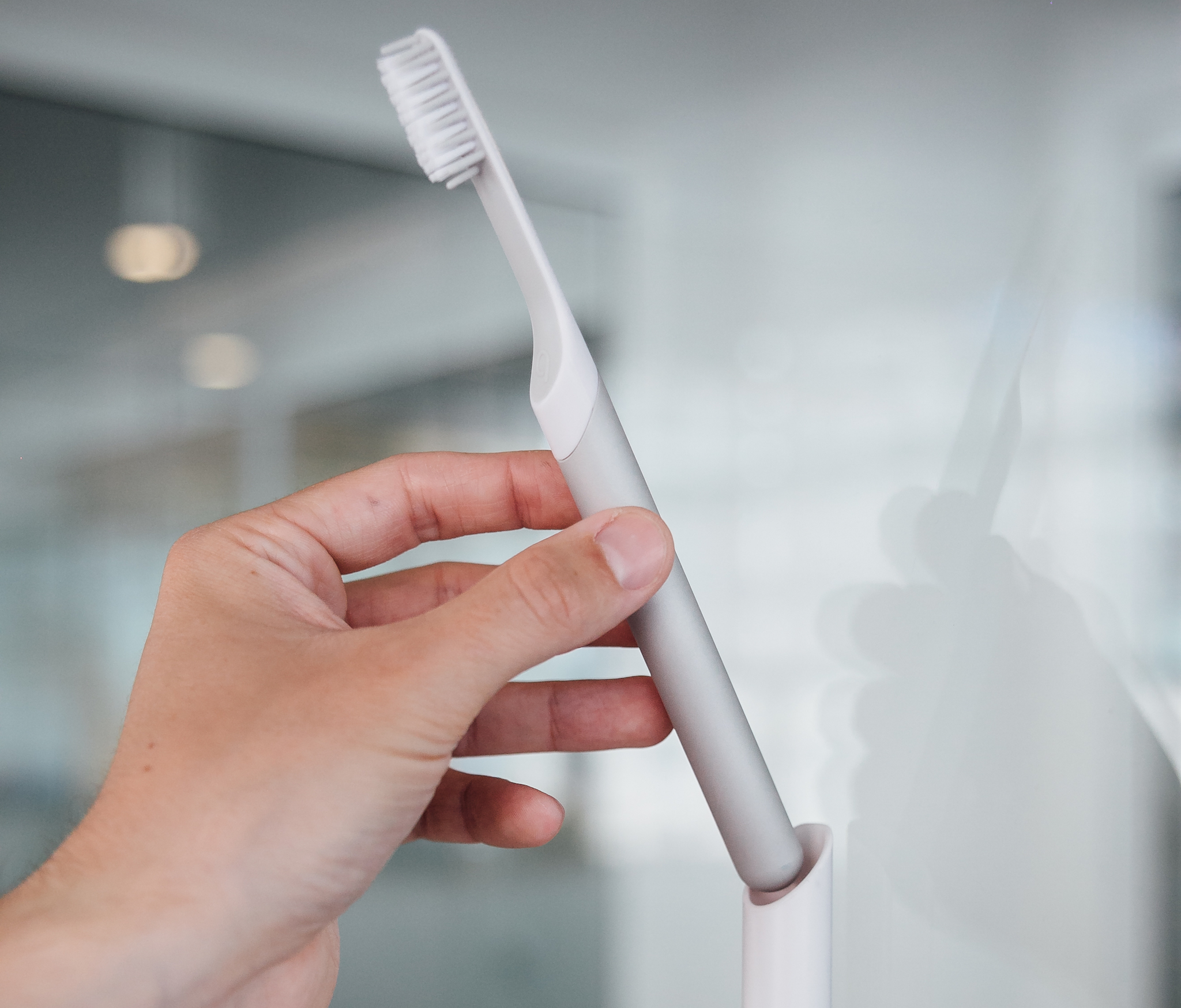When the first dentist Simon Enever went to in the United States suggested he purchase a cheap electric toothbrush rather than a more expensive model, he decided to look into his options more carefully. As he began shopping around, he wasn’t pleased with the selection he found on the shelves.
“As a designer, I saw an area [in the market] that was ugly and kind of old-fashioned looking, so it felt right to do something about it,” says Enever, an industrial designer from Bristol, England.
So Enever and Bill May, a product designer he worked closely with at the Hearst Corporation, began working evenings and weekends to redesign the toothbrush. Together, they became co-founders of Quip.
After consultations with multiple dentists, they quickly realized that many consumers don’t even have the brushing fundamentals down—brushing for two whole minutes, twice a day, and changing brushes every three months.
“We noticed that big brands were focusing more on selling you their products and not about daily habits,” says Enever, who’s worked on projects for Panasonic, Lenovo, and Herman Miller at other design agencies. “It made sense for us to come together because we both had design sensibilities and we wanted change the mindset of oral care.”
 It took them about a year-and-a-half to produce an actual workable toothbrush. Quip’s lightweight and beautifully designed toothbrush has an internal smart electric motor that allows the bristles to vibrate for two minutes (every 30 seconds the toothbrush pulses, reminding you to switch to a different quadrant of your mouth). The best part is that you don’t need to charge your toothbrush, since you can easily insert a AAA battery.
It took them about a year-and-a-half to produce an actual workable toothbrush. Quip’s lightweight and beautifully designed toothbrush has an internal smart electric motor that allows the bristles to vibrate for two minutes (every 30 seconds the toothbrush pulses, reminding you to switch to a different quadrant of your mouth). The best part is that you don’t need to charge your toothbrush, since you can easily insert a AAA battery.
They tested their first iteration on Indiegogo, and they were pleased about the positive reactions from organizations that wanted to be involved with a company focused on promoting oral care. New York University’s College of Dentistry has officially endorsed the product.
When it comes to pricing, Enever looked to brands like Harry’s and Dollar Shave Club, which are selling simple bathroom products to millennials. Starting at $20 for a manual brush ($40 for an electric one), the subscription pricing includes a case and a tube of toothpaste. You’ll get replacement packs that include a new bristle head and toothpaste for an additional $10 every three months.
As of now, the Quip team isn’t looking to focus its efforts on converting Philips or Sonicare users. They’re enthusiastic about tapping the market of manual toothbrush users and showing them the benefits of simple electronic devices.
“If we can make you more attached to your toothbrush,” says Enever, “then we’re doing the biggest job of all.”
Photo credit: Lauren Kallen




